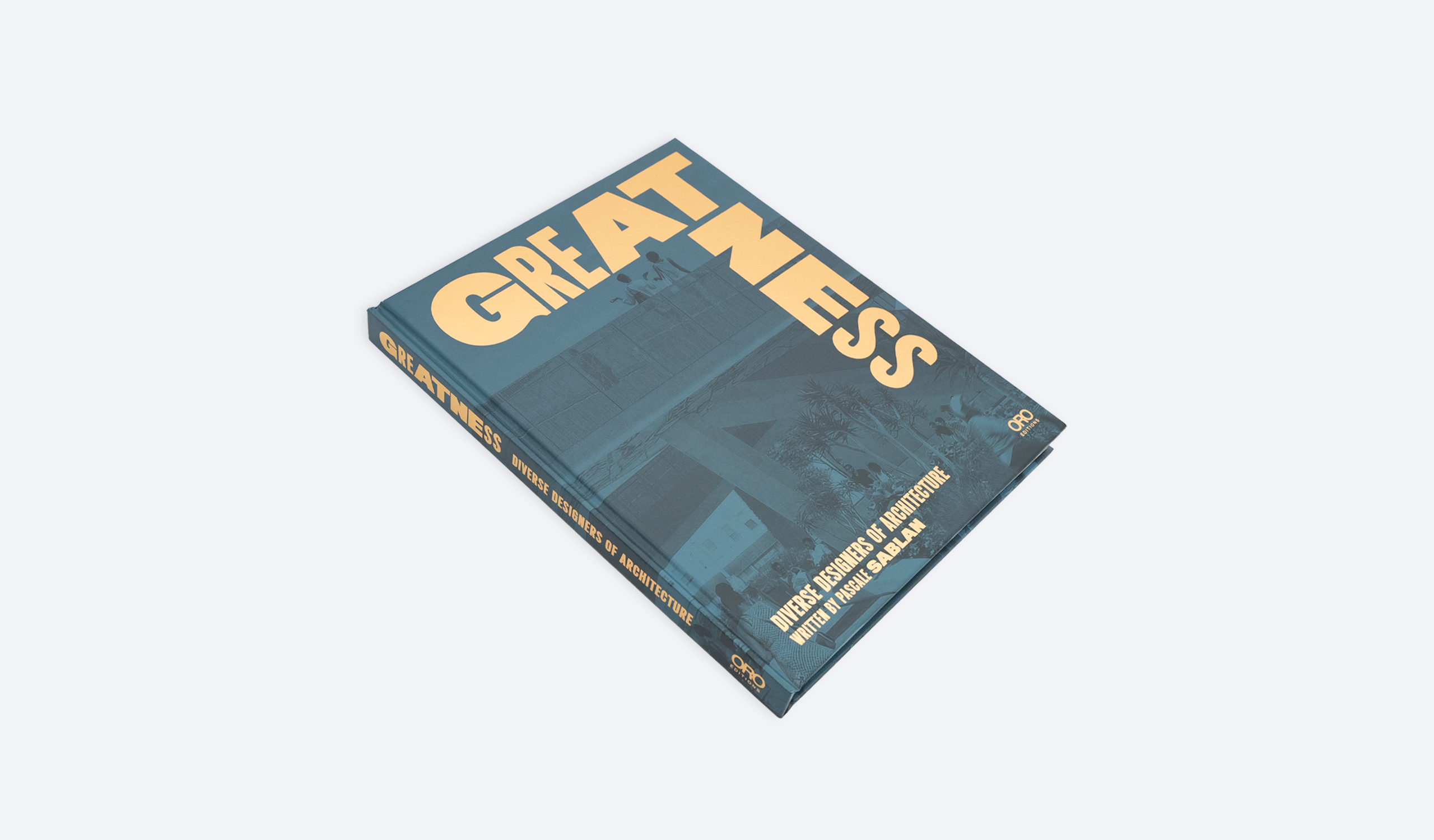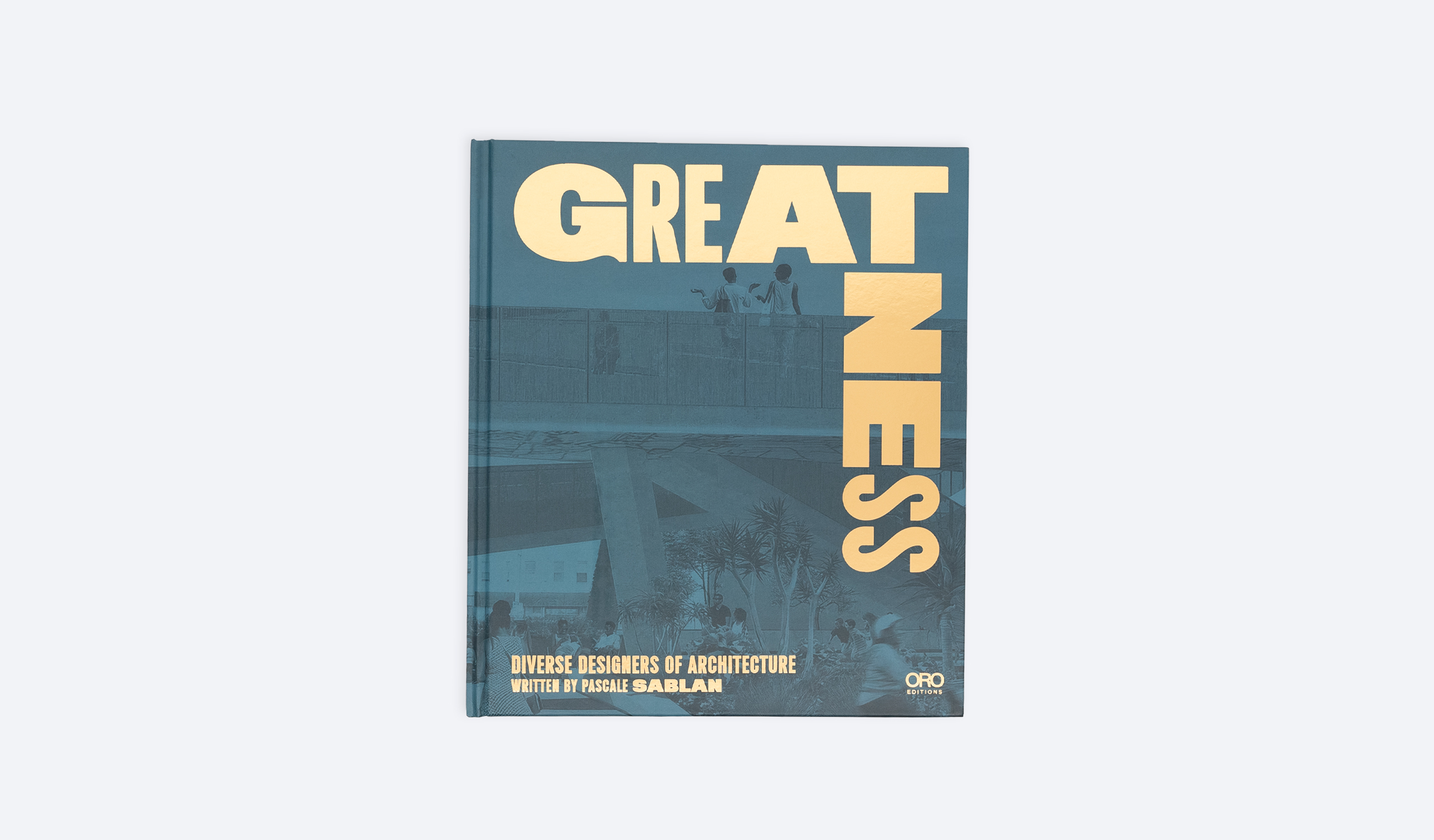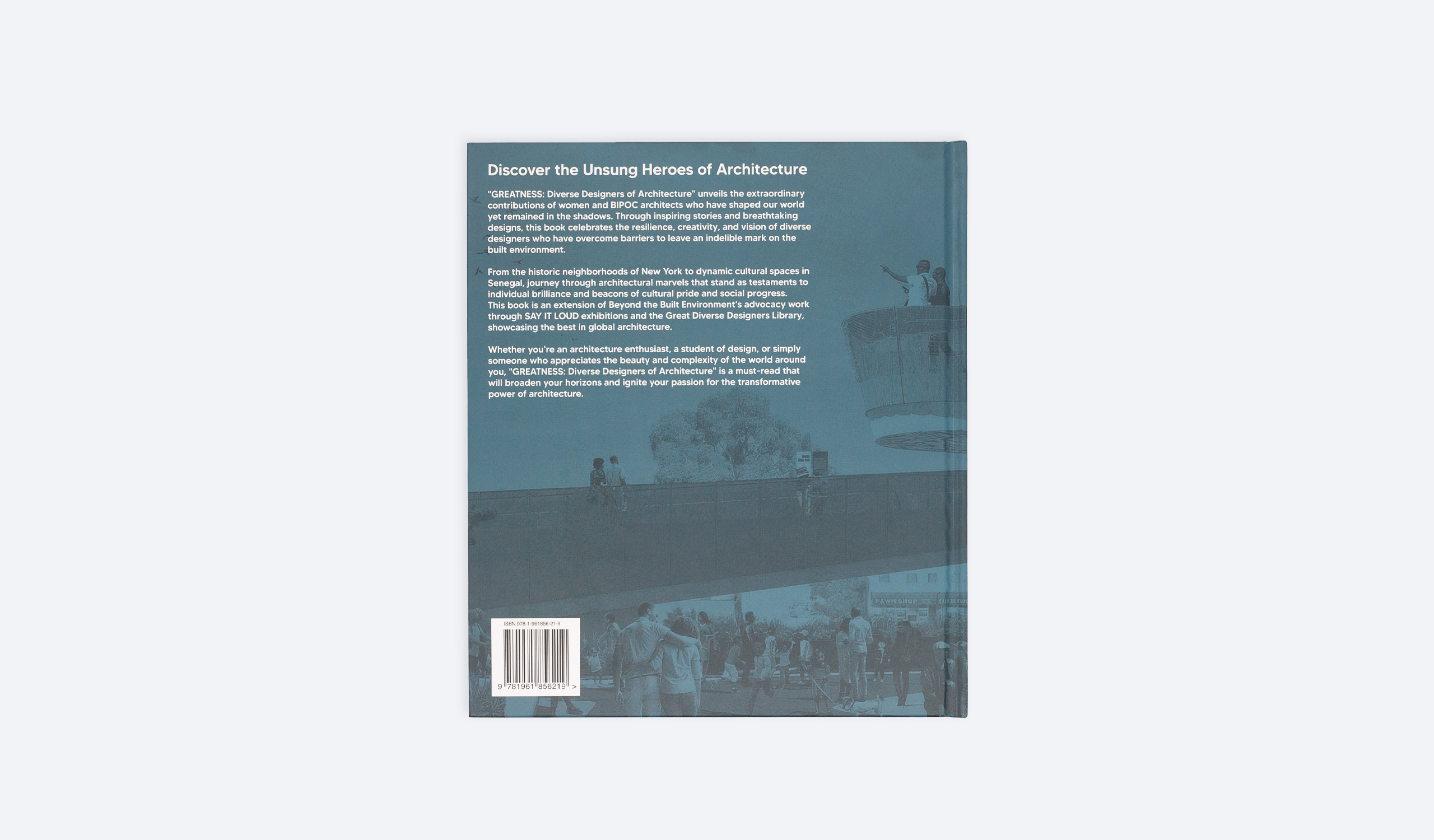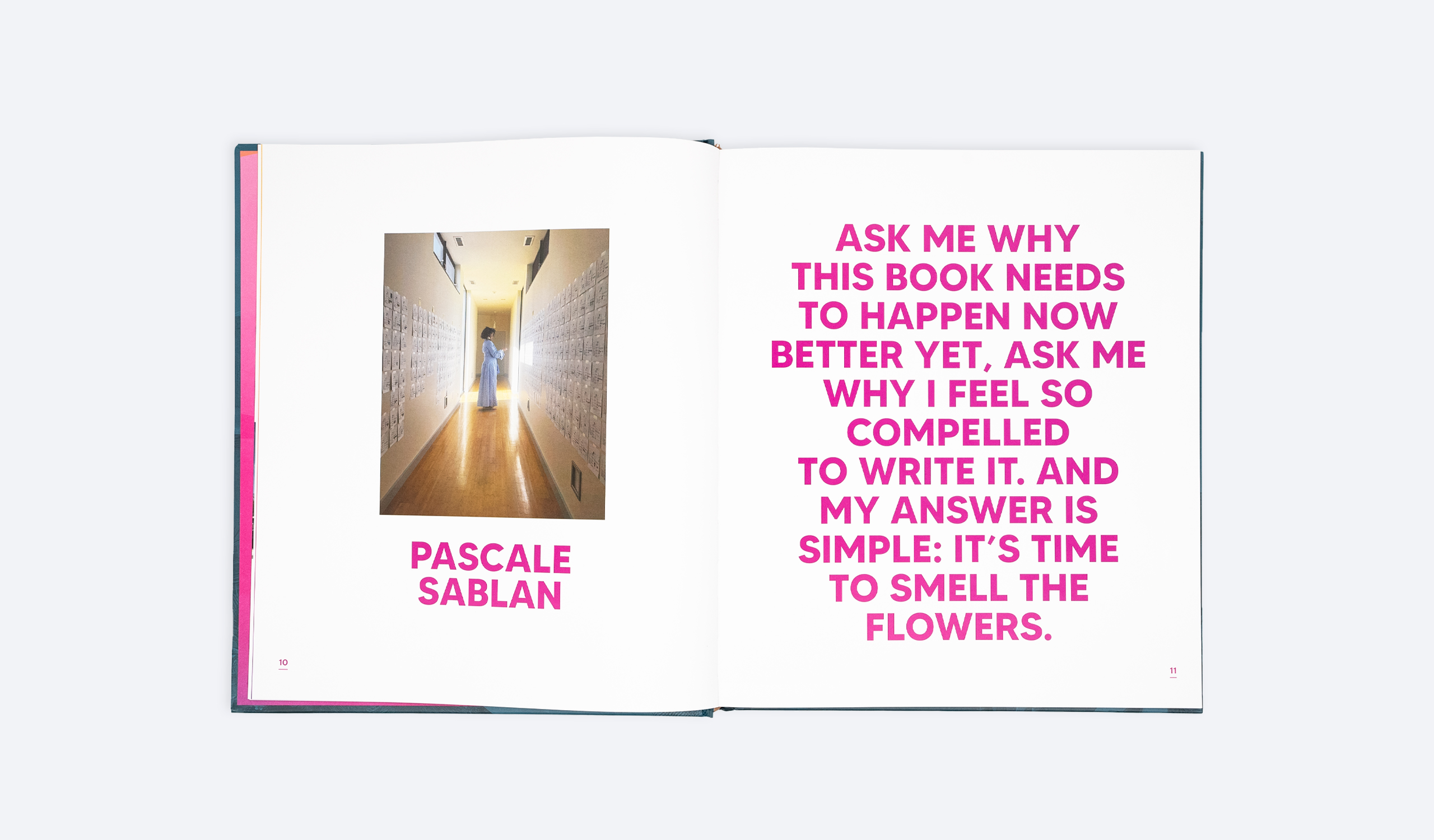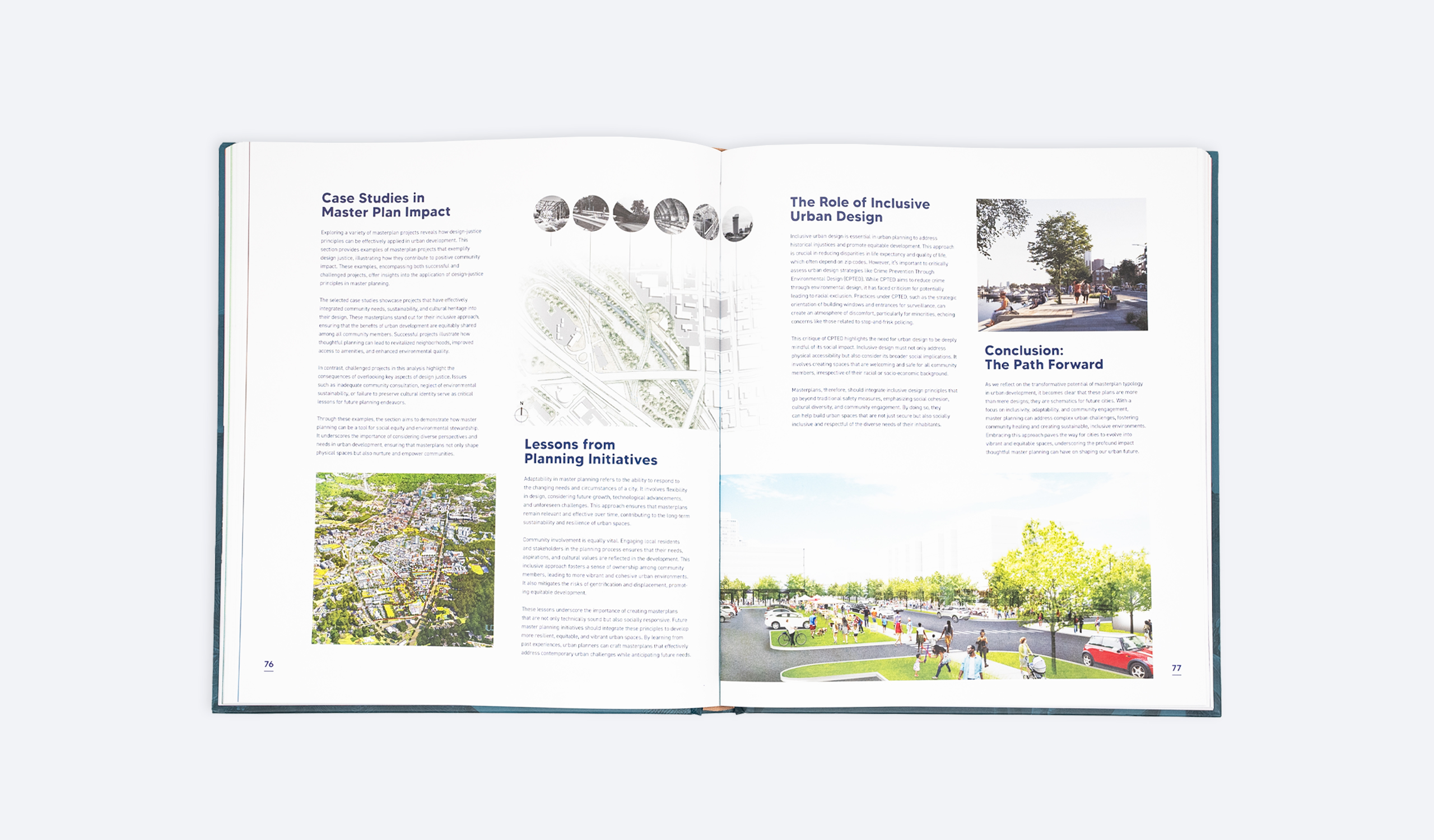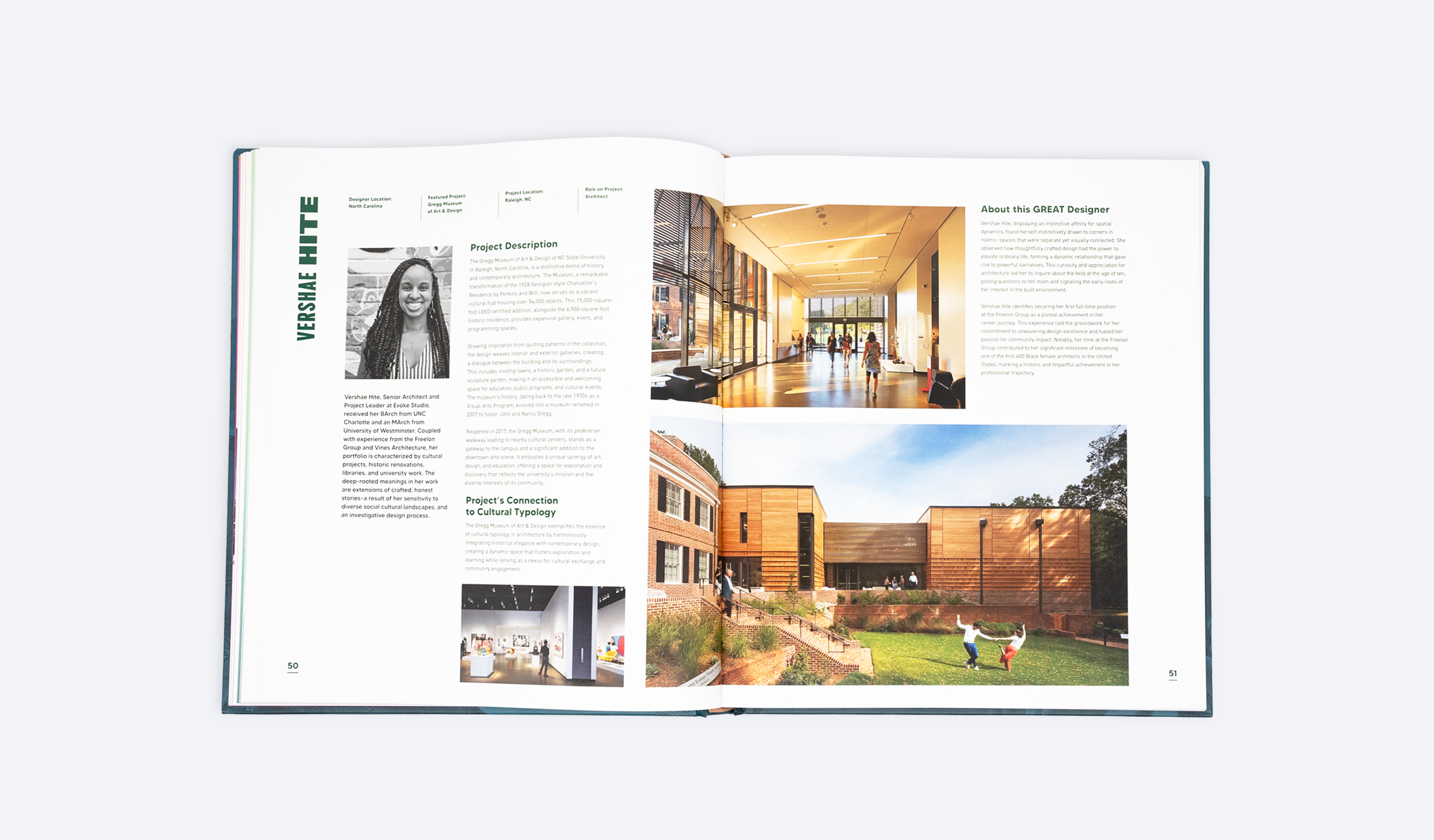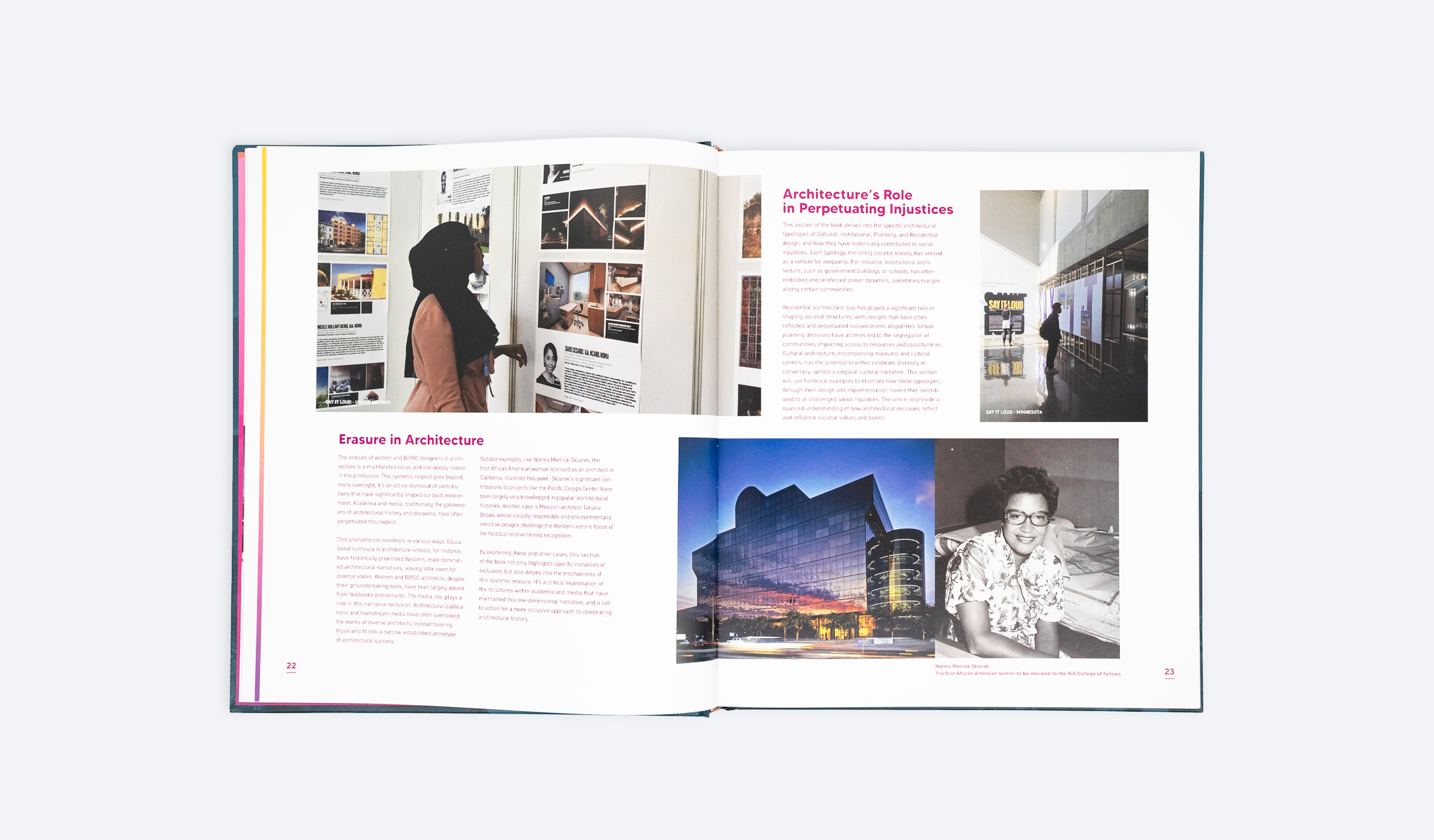Architect and activist Pascale Sablan on standing up for marginalized communities and her new book Greatness

In a profession that often overlooks marginalized communities, woman architect Pascale Sablan is redefining the narrative. She shares her experiences with discrimination, the value of self-worth, and the inspiration behind her new book GREATNESS.
For those familiar with the wide-ranging work of Pascale Sablan (and, let’s be honest, in the architectural field that’s most people), it might come as a surprise that her journey into the profession began entirely by accident. Speaking over Zoom from her New York apartment, she recalls a story: “As I’m drawing and laying it out with a pencil first, a person walks by and he goes, ‘Wow, you can draw straight lines without a ruler. That’s a great skill for an architect to have,’ and just keeps walking.” She tells me about the day she was painting a mural for the Pomonok Community Center in Queens. “When he said it, I was like, ‘Oh my God. That’s it!”’
It’s not lost on her that without that brief encounter, her path to becoming an architect might never have unfolded. Still, the moment planted a seed in the then eleven-year-old Pascale, who was already skipping ballet lessons to join her brother in art classes. Her mother, however, was less enthused about her newfound interest. “She’d already bought me a tutu,” Pascale says, smiling.
“I identify my leaders and the superpowers of everybody in the office.”
Following that stranger’s advice certainly paid off. Today, Pascale Sablan stands as the 315th living African American woman to achieve licensure as an architect in the United States. In January 2024, after joining the firm as an associate in 2021, she was appointed CEO of Adjaye Associates’ New York studio. In this role, she leads projects across North and South America and the Caribbean while shaping the office’s strategic direction by prioritizing community-centered projects, engagement programming, and advocacy initiatives.
One such project is the Newton Enslaved Burial Ground Memorial in Barbados. The area was designated a UNESCO Slave Route in 2001 following an Archaeological investigation revealing evidence of the internment of approximately 570 enslaved Africans. It is a part of Barbadian history that has been overlooked and the project will not only serve as a dignified memorial to the interred souls, but also as a global research institute with access to the Barbados National Archives.
“David [Adjaye] designed the memorial to be constructed from compressed soil, clay, minerals and stone, so that it is literally built of the earth,” Pascale explains. “Not only is this the most natural and sustainable way of making a building that coexists with nature, but it is also a physical manifestation of the past, reformed into a narrative that speaks of hope and renewal.”
[The credit of the renderings below belongs to Adjaye Associates]

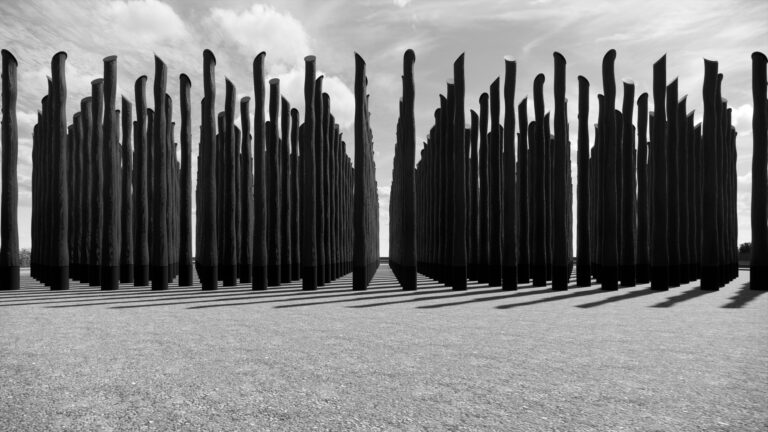

This deep sense of connection—to history, to nature, and to people—extends to Pascale’s approach to leadership. Despite her demanding responsibilities, she doesn’t let the hierarchical nature of office life dictate her personal working culture. She prefers to have her desk in the middle of the room, staying in the thick of it with everyone else. Pascale is also intentional about giving everyone her undivided attention, be it a seasoned employee or an intern. “I identify my leaders and the superpowers of everybody in the office, allowing them to flex that, as well as say, ‘Hey, here’s where I need help’, and provide resources, support, mentorship,” she explains. “Also, everyone requires a different tongue when you speak to them, which is something I learned from my numerous siblings.”
Growing up in a lively household in Queens as the second oldest of ten children, Pascale learned the value of effective communication early on. “If I wanted my youngest brother to do something, I’d have to frame it as cool. If I wanted my younger sister to do something, I’d talk about how impactful it will be,” she says. “Communication is not just saying what you feel, but also knowing your audience. That’s been a really helpful professional tool as well.”
Pascale wasn’t just the sister keeping a watchful eye; she was also the one enthusiastically celebrating her siblings’ achievements. “They would be afraid to tell me their accomplishments because they knew the minute they told me, I would tell everyone,” she admits. “And I realized I just feel so proud of people that I find that highlighting and elevating other people brings me joy. And my siblings were the first test case for that.”
Knowing her talents, Pascale wasted no time putting them to positive use. In 2018, she founded the nonprofit Beyond the Built Environment, driven by the need to uplift women and BIPOC designers to help marginalized communities. Together with her team, she provides various opportunities for education, mentorship, and professional development. Among their standout initiatives is the SAY IT LOUD traveling exhibition, which has celebrated and amplified the contributions of local women and BIPOC designers in 50 exhibitions worldwide. In 2020, amidst the COVID-19 lockdowns, she transformed all past exhibitions into accessible virtual galleries to ensure the mission continued.
When I ask her about the accomplishment of the exhibition, she is quick to point out the collective effort. “It’s not about my idea; it’s about thousands of people coming together to create something impactful,” Pascale says. “The most stunning aspect of architecture is the collaborative nature of it. Nothing takes one person to do—not even these curls, right?” She smiles, pointing at her head.
“The most stunning aspect of architecture is the collaborative nature of it. Nothing takes one person to do—not even these curls, right?”
As you might have guessed, her advocacy doesn’t end here. Since 2023, Pascale has also been serving as the fifth woman president of the National Organization of Minority Architects (NOMA) in its 53-year-old history. During her tenure, which is about to conclude at the end of the year, she has expanded the organization’s global footprint by establishing two international chapters—a move that elevated the organization’s work and broadened its influence. But this wasn’t just about increasing reach; it was about recognizing the shared threads that connect the challenges faced by architects of color in the United States with those faced globally.
“We have unique experiences here, but there are universal through-lines in how these issues manifest around the world,” she explains. By fostering international connections, she ensured that NOMA’s members could participate in global conversations, leverage international resources, and collaborate on a broader scale. This vision has empowered NOMA’s members to look beyond domestic borders and contribute to meaningful change on a worldwide stage.
Balancing all these duties and responsibilities is no small feat, especially when a NOMA presidency alone requires up to 20 trips per year. “I’m very intentional about where I need to be and how long I need to be out,” Pascale shares. “I usually travel super early in the morning or very, very late at night so that I can keep and hold and respect the work day. I try to be as present with people as possible.”
Her discipline extends to her personal life. She wakes up at 4:30 a.m., carves out time for prayer, journaling, and exercise before arriving at the office about an hour before everyone else. On top of that, as I can tell by all the Legos scattered around her table, Pascale is also a mom. She is raising her 8-year-old son, so when her day at the office ends, she ensures work doesn’t intrude on family time. “When I’m home, my computer stays closed. He has my undivided attention.”
“We definitely tend to celebrate people after they pass, and this book is an intentional thing of saying ‘no, these are people who are currently practicing and providing design justice, and I want you to know all about them.”
Pascale’s activism and dedication are undoubtedly rooted in her personality, however, there was a defining incident early in her career that ignited her drive even further. When she was a student, a male professor asked her and a colleague to stand, declaring they would never become architects because they were women and Black. She shared the story in her inspiring keynote at DIVIA’s first Mind the Gap conference on November 1st at AEDES in Berlin, which she concluded with an encouraging declaration: “Many moons ago I was asked to stand, and I’ve been standing and fighting for us ever since. I hope you are inspired to stand with me.”
Watching her refuse to be discouraged is a powerful message for young women who have ever been told they don’t belong or can’t achieve something. This experience not only taught Pascale the importance of speaking out and boldly pursuing her ambitions but also the value of demanding what she rightfully deserves.
“I say it all the time, close mouths, don’t get fed, right? Understanding that aspect is also probably why most of my inhibitions or fear go out the window,” she says.
Photos: Oro Editions
Pascale channels this spirit into her forthcoming book, GREATNESS: Diverse Designers of Architecture, set for release in February 2025 and already available for pre-order on Amazon, where it has topped several new release categories (Pascale’s goal is to make it on The New York Times bestseller list). GREATNESS reflects the mission Pascale has cultivated with her team at Beyond the Built Environment: celebrating the contributions of diverse designers and advocating for equitable communities.
The book, featuring 1,130 diverse designers from the GREAT Diverse Designers Library, offers a beautifully illustrated collection of stories that highlight the brilliance of 47 visionaries shaping the future of the architecture industry. It also examines how architectural design has historically perpetuated social injustices and erased women and BIPOC architects from history.
With this book, Pascale not only sets out to challenge the dismissive views of a former professor but also, as she writes, to “give folks their flowers—hopefully while they still have time to smell them.”
“I’m proud of it and really hope and pray that it makes a real impact in our literature and publishing world,” she shares. “We tend to celebrate people after they pass, but this book is an intentional effort to say, ‘No, these are people currently practicing and advancing design justice. I want you to know all about them.’”
Publisher Oro Editions fully embraced Pascale’s vision, ensuring that the entire team working on the book reflected the diversity it celebrates.
The book feels more relevant than ever, especially amid the troubling retreat of some American firms from their DEI initiatives due to economic pressures. “It’s important for me to leave the world a little easier and more accessible than I found it,” Pascale says.
While her journey is far from over, her remarkable achievements have already created a lasting legacy.
Did you like this profile? Make sure to share it on your socials and tag us!
